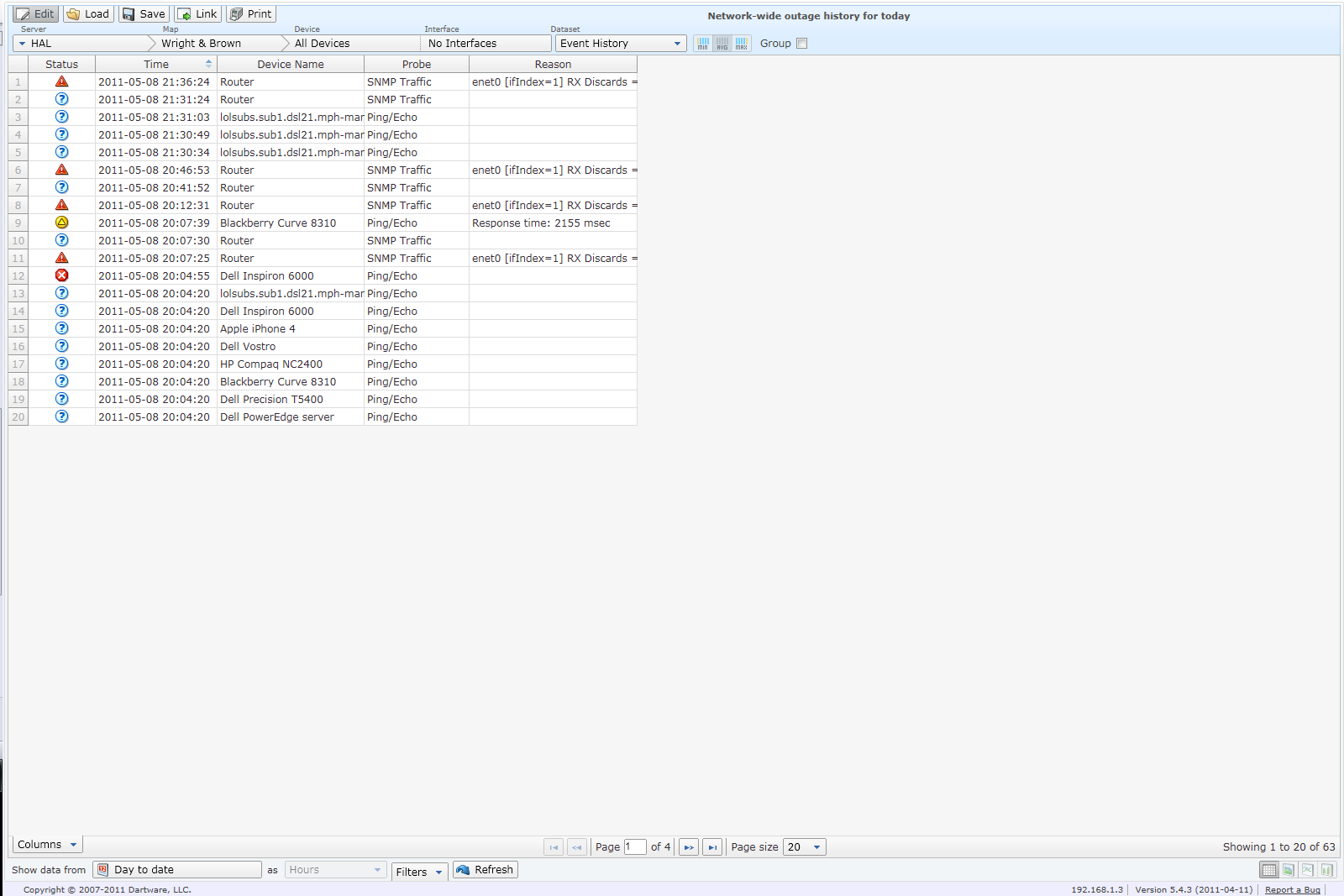Dartware InterMapper review
Offices are more network-dependent than ever, so it's important to minimise downtime or prevent it completely. Karl Wright takes Dartware's InterMapper networking monitoring software out for a spin to see if it can help.
InterMapper is a comprehensive network monitoring program that makes it easy to see as soon as something goes wrong and which also gives you the data you need to monitor and analyse network performance.
As well as probes and notifications, InterMapper can also produce a variety of reports. The program's reports server collects data on packet loss, response times (in milliseconds) and input and output rates in bytes. To use this data, a command in the Monitor menu lets you open the Reports module in your web browser. With this, you can either define new reports yourself or use the pre-configured ones (including reports on outage history, average response times, the slowest devices on the network and so on).

Here the Reports function shows us a history of recent outages on our test network. It's easy to generate reports from the web interface, not only on a given device but also on the performance of specific network ports on that device.
We're a bit reluctant to say that any software that comes with a 622-page manual is simple. Certainly, InterMapper does an awful lot and getting to know it inside and out isn't a quick job. Conceptually, however, it is very simple. It's easy to get started with it and you can get tangible results in a very short time. For only 18 a client (or even less if you buy more licenses, for instance, for a 1000-client network you only pay 3.80 per client), it's an excellent way of monitoring your network to spot and resolve problems before they arise.
Verdict
InterMapper is a comprehensive network monitoring program that makes it easy to see as soon as something goes wrong and which also gives you the data you need to monitor and analyse network performance.
System requirements for managing 100 clients: Operating system: Windows XP/Vista/7 Memory: 1GB RAM Hard disk: 20GB free System requirements increase with the number of managed clients
Sign up today and you will receive a free copy of our Future Focus 2025 report - the leading guidance on AI, cybersecurity and other IT challenges as per 700+ senior executives
-
 Hacker offering US engineering firm data online after alleged breach
Hacker offering US engineering firm data online after alleged breachNews Data relating to Tampa Electric Company, Duke Energy Florida, and American Electric Power was allegedly stolen
By Emma Woollacott Published
-
 Infosys teams up with AWS to fuse Amazon Q Developer with internal tools
Infosys teams up with AWS to fuse Amazon Q Developer with internal toolsNews Combining Infosys Topaz and Amazon Q Developer will enhance the company's internal operations and drive innovation for customers
By Emma Woollacott Published
-
 Lisa Su says AI is changing AMD’s hiring strategy – but not for the reason you might think
Lisa Su says AI is changing AMD’s hiring strategy – but not for the reason you might thinkNews AMD CEO Lisa Su has revealed AI is directly influencing recruitment practices at the chip maker but, unlike some tech firms, it’s led to increased headcount.
By Ross Kelly Published